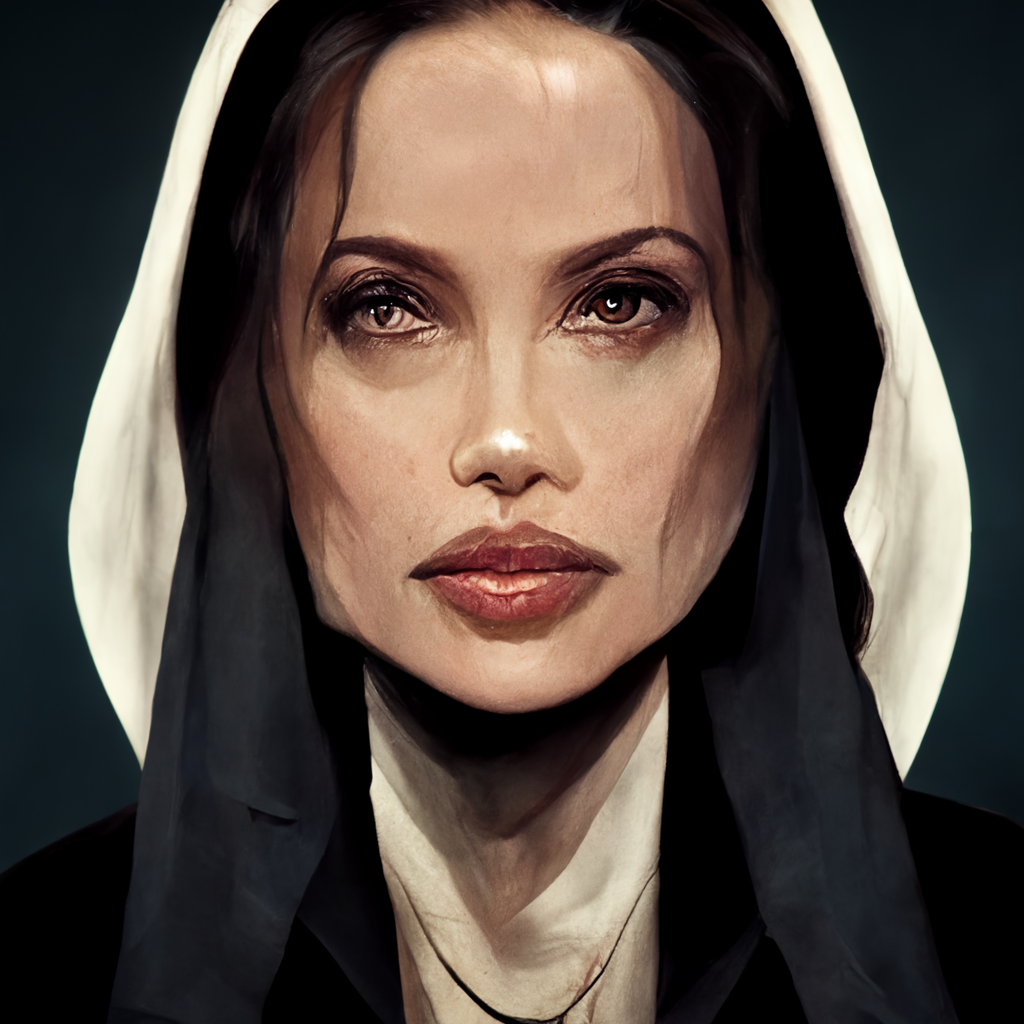AI-generated illustration for SEMIOVOX
One of 10 items cross-posted from SEMIONAUT.
She’s celebrity culture’s Mother Goddess – prolifically giving birth and adopting, making space in her family for all the world’s children. And now Angelina Jolie has taken her healing aspirations further with her directorial debut In the Land of Blood and Honey – in which the main character, a Muslim woman, falls in love with her Serbian rapist.
But in a very public row, the survivors of mass rape in the Bosnian war called for Jolie to be stripped of her title of UN Ambassador of Goodwill, saying that ‘a love story couldn’t have existed in a rape camp’.
I responded to the symbolism made visible in this drama with a performance art piece entitled Holy Jolie. The piece was also inspired by another news story which came out at the same time: a temple in Cambodia, where Lara Croft was shot, was renamed the ‘Angelina Jolie temple’ by its leading monks, in an attempt to save it from ruin.
The combined stories struck a chord for me as an artist born in Bosnia and sensitive to the often absurd power dynamics shaping the realities we live in. In Holy Jolie I combined images of Lara Croft and codes surrounding victimhood to create an impossible temple raised to the modern UN goddess.
On the altar of this archetypal mother-figure, I offered many Bosnian children, ‘more than she ever wanted’. (After the war there were many unwanted children as a result of forced pregnancies in rape camps, recognised by international courts as a crucial part of a systematic policy of ethnic cleansing.)
I wanted to make the point that the shame of rape cannot be transformed into language – least of all into the soothing resolutions of the Hollywood Imaginary. For Bosnian rape survivors, the symbolic blockage is double. First, they can’t talk about their experiences as their trauma lies at the limit of representable human experience. And second, even when they do try to tell their story, no-one, in Bosnia’s patriarchal society, will listen.

As a post-colonial, post-war and deeply traumatised country, Bosnia offers space for international cultural interventions which in other settings simply wouldn’t pass. When Jolie, as a personification of Hollywood power, decided to delve into this subject, she did two things. Firstly, she shed an important spotlight on one of the most traumatic events in European history since the Second World War. But secondly, she disregarded the experiences of thousands of raped women.
Like an elephant in a china shop, this film bursts into a sphere of national trauma, enacting a fantasy of healing and romantic redemption that’s wildly off the mark as a piece of narrative. Predictably enough, Jolie brand power won over the Bosnian cultural elites who were completely smitten by her unexpected appearance at the Sarajevo Film Festival in August this year. Another award was bestowed, while the controversies around the film didn’t even get a mention.
The film that will be offered to mass audiences in December will super-impose Hollywood ideals onto a reality that’s beyond conventional narrative. In my performance, I naively pray to the Goddess to take our shattered pasts and futures and make a good film out of those. I don’t believe the prayer will be fulfilled anytime soon.
Original publication date: November 2011.


